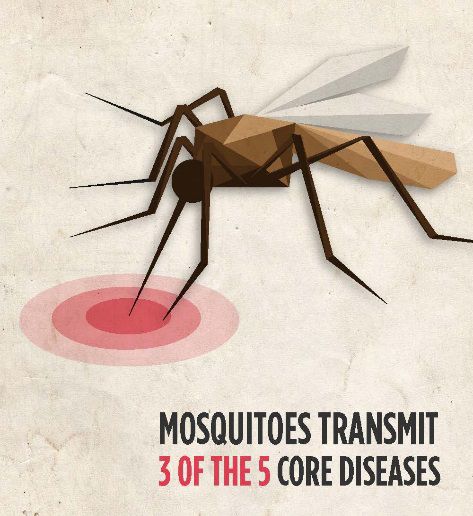Horses are threatened with mortality rates up to 90 percent from mosquito-transmitted diseases, which include Eastern equine encephalomyelitis, Western equine encephalomyelitis and West Nile virus.
Horses are at the highest risk for contracting these diseases during mosquito season, occurring summer through fall in the United States. Risk management is critical for horse owners.
“To help limit a horse’s risk of contracting deadly core equine diseases, annual vaccinations are immensely important,” said Jaci Boggs, DVM, senior technical services veterinarian at Zoetis.
Prioritizing annual vaccination is the most effective strategy for helping protect horses against mosquito-borne diseases. Vaccinated horses have shown to be 30 times less likely to contract West Nile virus. West Nile-Innovator is the veterinarian’s first choice for core disease protection against West Nile virus and equine encephalomyelitis due to Eastern, Western and Venezuelan viruses.
“In conjunction with annual vaccination, proper management of the environment to limit mosquito breeding opportunities is critical,” Boggs said.
Try implementing these 5 barn-friendly mosquito management tips:
Remove objects such as unused troughs, wheelbarrows and tarps to eliminate mosquito-breeding habitats.
Empty and clean any water-holding containers on a weekly basis.
Fill in any low-lying areas that collect standing water after rainfall.
Hang fans throughout the barn where horses are stabled, as mosquitoes avoid moving air.
Apply insect repellent or bring horses inside from dusk to dawn, which are peak mosquito feeding hours.
“It’s important for horse owners to remember that West Nile virus cases continue to occur across the United States,” Boggs said. “An unvaccinated horse is very much at risk for core equine diseases, such as West Nile, EEE and WEE.”
All horses need annual core disease vaccination as the foundation of their wellness program. Contact your veterinarian today to discuss vaccinating amid an emerging mosquito population. Visit CoreEquineDiseases.com to learn more.


